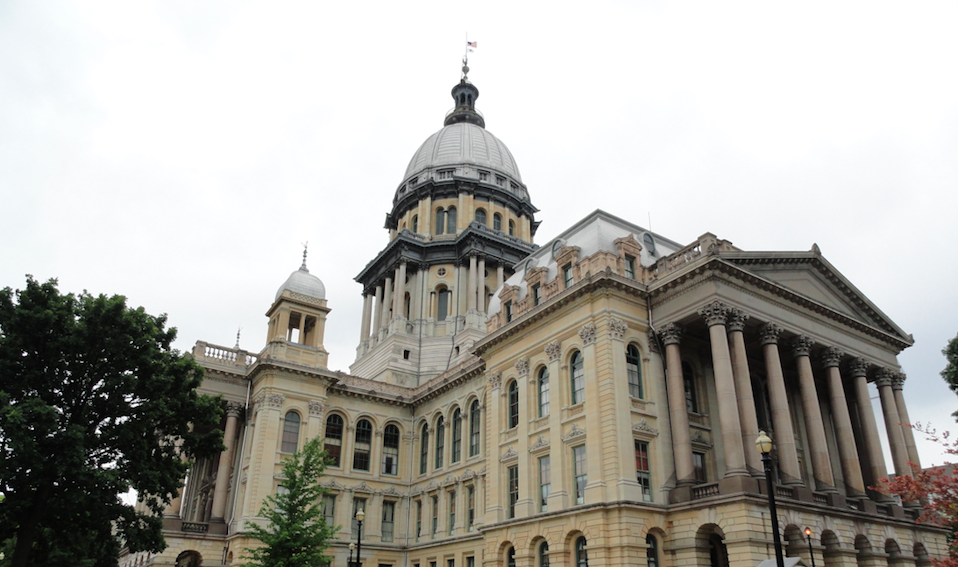Yesterday, the State of Illinois finally got a budget, after two and a half years of stalemate (and higher education/social service hostage-taking by Governor Bruce Rauner).
Today, the responses are pouring in; here’s how Champaign-Urbana politicians are responding to the news:
Carol Ammons, Illinois Representative (D-103)
On Thursday, the Illinois House of Representatives took a crucial vote to override Governor Rauner’s veto of a vital package of bills that constitute a bipartisan, balanced budget agreement for the State of Illinois. I am proud that today the Illinois House was able to finally come to a compromise where both Republicans and Democrats stood firmly together to end Governor Rauner’s impasse.
Our balanced budget plan is a compromise that cuts state spending by almost $3 billion, includes pension reforms and eliminates layers of bureaucracy. This plan creates these savings while providing greater funding for local schools, funds our state university system, ensures that our elderly, disabled, and most vulnerable can receive services and support they need.
Effective July 1, the budget passed today restores a portion of the income tax rate in effect from 2011-2015, for individuals, the income tax rate will go from 3.75% to 4.95% and from 5.25% to 7% for corporations. It contains spending cuts of $3 billion in several areas and will close numerous corporate loopholes, generating more revenue for the state. The budget will increase funding for K-12 education over FY17 levels by approximately $700M, relying on a more equitable school funding formula that benefits low-income school districts.
It’s important to compare the Illinois tax rate to our neighboring states. Even with the increase, our average income tax rate will be less than Wisconsin, Iowa, Missouri, Kentucky, and Ohio and will put us in the middle of the pack nationwide. The current tax rate is the same as it was in 1989, even though costs have dramatically increased since then. Additionally, unlike the majority of states, Illinois does not tax retirement income or services. We are one of the few states which still has an antiquated flat tax.
Cuts alone won’t do it. After the State expends on hard costs, i.e. bond payments, pensions; the majority of discretionary state spending goes to health care, social services, education, and public safety.
As far as bringing jobs and real economic investment to Illinois, checking a list of “political wins” won’t put Illinois back on track financially. Businesses large and small consistently say that stability and predictability will keep them creating and retaining jobs in Illinois. Passing a balanced budget will finally bring that much-needed stability to Illinois after two long years.
While Governor Rauner has taken the easy road of rejecting solutions but not proposing any, members of the legislature made sacrifices and negotiated a bipartisan, balanced budget plan that will ensure that this state will not continue down the path to absolute financial ruin. If we had not completed the veto override, there would have been catastrophic consequences for Illinois families. Our state would have been downgraded to junk bond status, schools wouldn’t have been able to open in the fall, and at least 25,000 Illinois workers would have been out of a job.
Although there is still work to be done, this budget override was a huge step in the right direction for the state of Illinois.
Sincerely,
Carol
Diane Marlin, Mayor of Urbana
When you boil it down, the choice was between a tax increase or insolvency. Thank goodness we had some local legislators on both sides of the aisle with political courage because we were facing calamity.
This region depends upon a healthy University of Illinois and this budget will provide nearly $900 million in funding to the University for fiscal years 2017 and 2018. Parkland College and K-12 schools will also fare better.
In Urbana, the MCORE road project on Greet Street and the Lincoln Avenue extension to Olympian Drive can resume again after last week’s abrupt shutdown.
Local social service agencies will finally start getting state funding after 18 months of devastation. And the state can begin paying down its mountain of unpaid bills and avoid a junk credit rating.
Yes, there’s plenty more work to be done. This state must deal with funding for schools and pensions. This budget will ask more of everyone and it will be painful. But at this point, there was no choice.
Rodney Davis, U.S. Representative (R-IL13)
We will update with more statements as they come in, so stay tuned.








